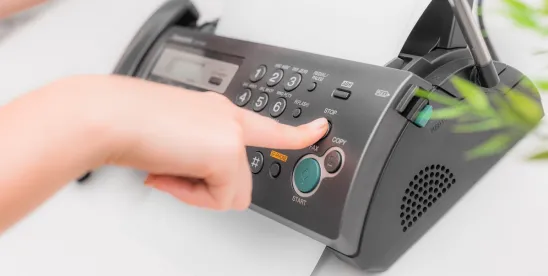The Eleventh Circuit recently narrowed the definition of an ATDS in Glasser v. Hilton Grand Vacations Co., LLC, holding that an ATDS must either (1) have the capacity to use randomly or sequentially generated numbers or (2) require human intervention. No. 18-14499, 2020 WL 415811 (11th Cir. Jan. 27, 2020). This week, a lower court within the Eleventh Circuit handed down the first post-Glasser ruling, granting summary judgment in favor of the Defendant based on the definition of an ATDS set forth in Glasser. Northrup v. Innovative Health Ins., No. 8:17-cv-1890-T-36JSS, 2020 U.S. Dist. LEXIS 31851 (11th Cir. Feb 25, 2020).
In Northrup, Plaintiff received a text message sent to his cellular phone marketing Defendant Innovative Health’s healthcare product. Innovative Health contracted with CyberX, who in turn purchased a spreadsheet containing a list of customer data from FleetSeek. Christopher Pearson (Pearson), the co-founder and president of CyberX, uploaded the spreadsheet into 212CRM, the company’s contact management software, reviewed the data for errors, and clicked a “SEND” button to initiate the sending of text messages. 212CRM then communicated the delivery instructions to Twilio Platform (Twilio), a web-based software application which allows users to send text messages to specific phone numbers. Twilio delivered the text messages, complying exactly with 212CRM’s requested content, recipient, and order instructions.
The court granted Defendant’s motion for summary judgement, reasoning that neither 212CRM nor Twilio qualified as an ATDS because (1) neither had the capacity to randomly or sequentially generate numbers and (2) both required human intervention.
Neither 212CRM nor Twilio had the capacity to generate random or sequential numbers; both utilized a prepared list of numbers provided by a user. Pearson provided 212CRM and Twilio with the telephone numbers purchased form FleetSeek and messages were sent only to those numbers. Defendant’s identified “undisputed record evidence” of this fact. Plaintiff attempted to argue that only the FCC’s 2015 ruling was invalidated and their 2003, 2008, and 2012 rulings were valid and binding on the court and should be used to interpret the statutory definition of an ATDS. However, the court noted that the D.C. Circuit in ACA International “wiped the slate clean.” 948 F. 3d at 1310.
The amount of human intervention required by 212CRM and Twilio to send the text messages in question eliminated both from qualifying as an ATDS. The court explained the question of the necessary amount of human intervention depends on how much action a human must take to initiate the device’s features, not on when the human intervention takes place. Pearson navigated to the CyberX application, logged in, uploaded and reviewed the spreadsheet, manually aligned the data, and typed the content of the message to be sent before clicking and sending the message. The fact that Pearson’s intervention took place before the devices dialed was not determinative in the eyes of this particular court.
The court further explained that a device must require more human intervention than “just turning on the machine or initiating its functions.” Plaintiff argued that Pearson’s ability to hit “send” once but send a message to thousands of numbers qualifies the devices as ATDS. The court pointed to Herrick v. GoDaddy.com LLC, in which the court held that transmitting numbers, logging in, creating a message, and scheduling a time and date to send was “essential” and the fact that only one message was created and sent to thousands of customers “seemingly made no difference.” 312 F. Supp. 3d 792, 803 (D. Ariz. 2018). The numerous, and similar, actions Pearson took here precluded both 212CRM and Twilio from being considered an ATDS.
The Northrup case may be the first, but it certainly won’t be the last ruling within the Eleventh Circuit’s footprint to apply Glasser. Indeed, it would seem that every pending case within the Eleventh Circuit that arises out of a defendant’s use of an ATDS will likely meet the same fate.




 />i
/>i

